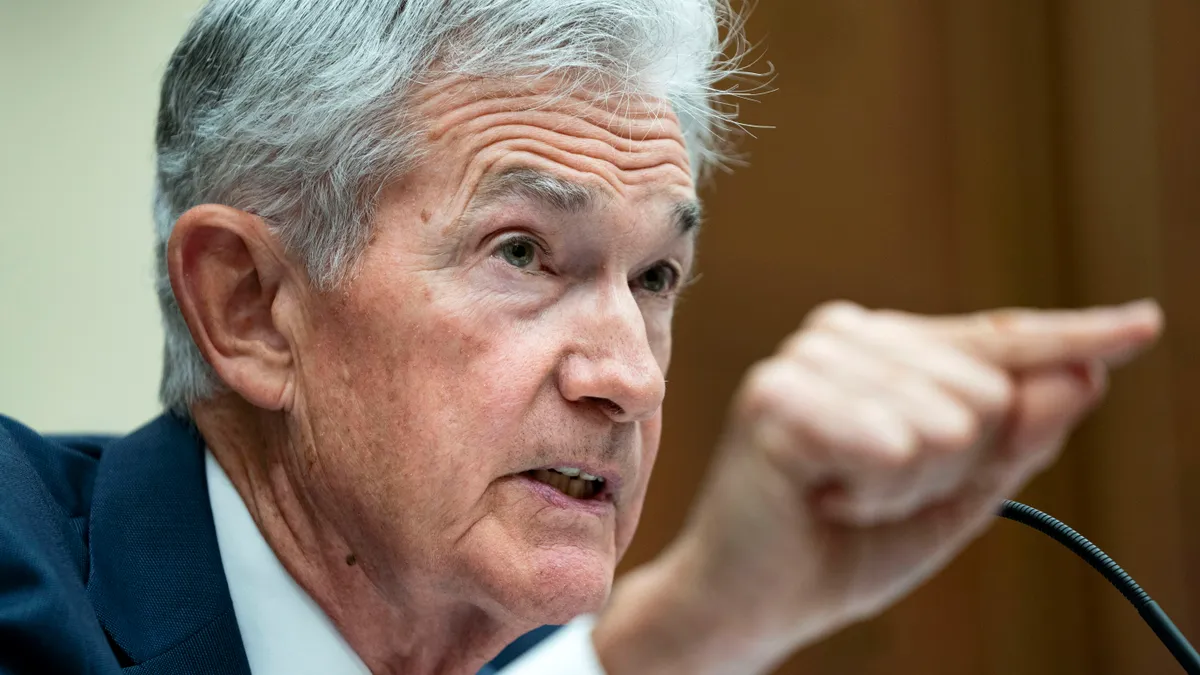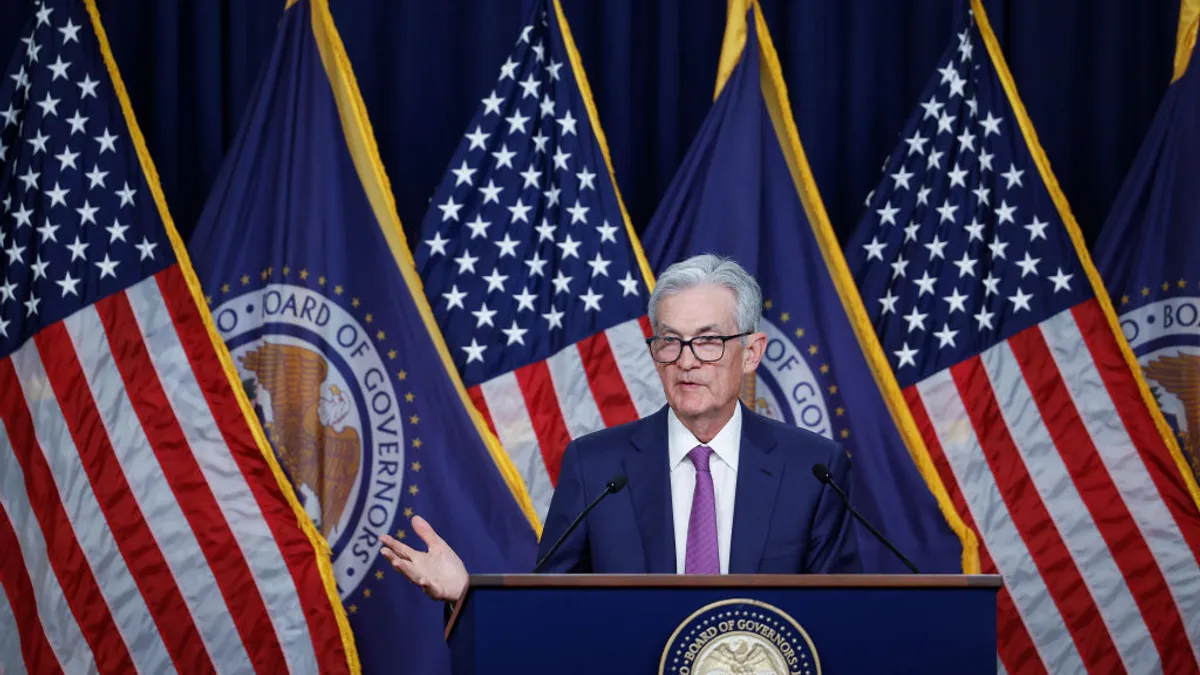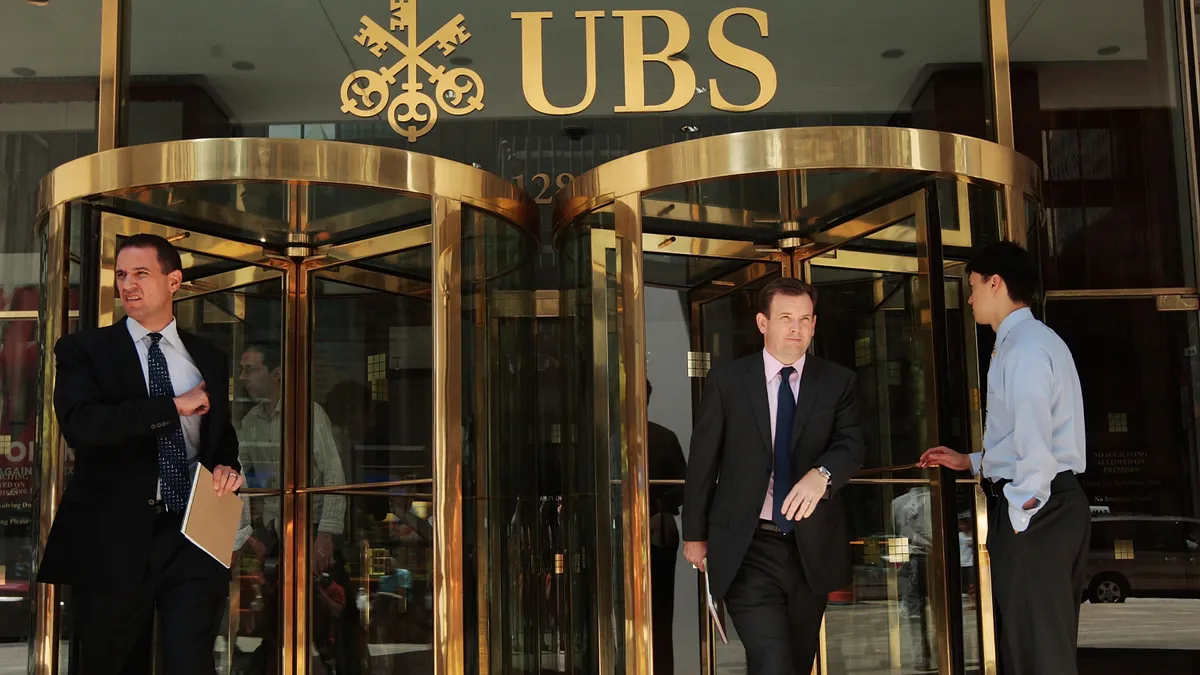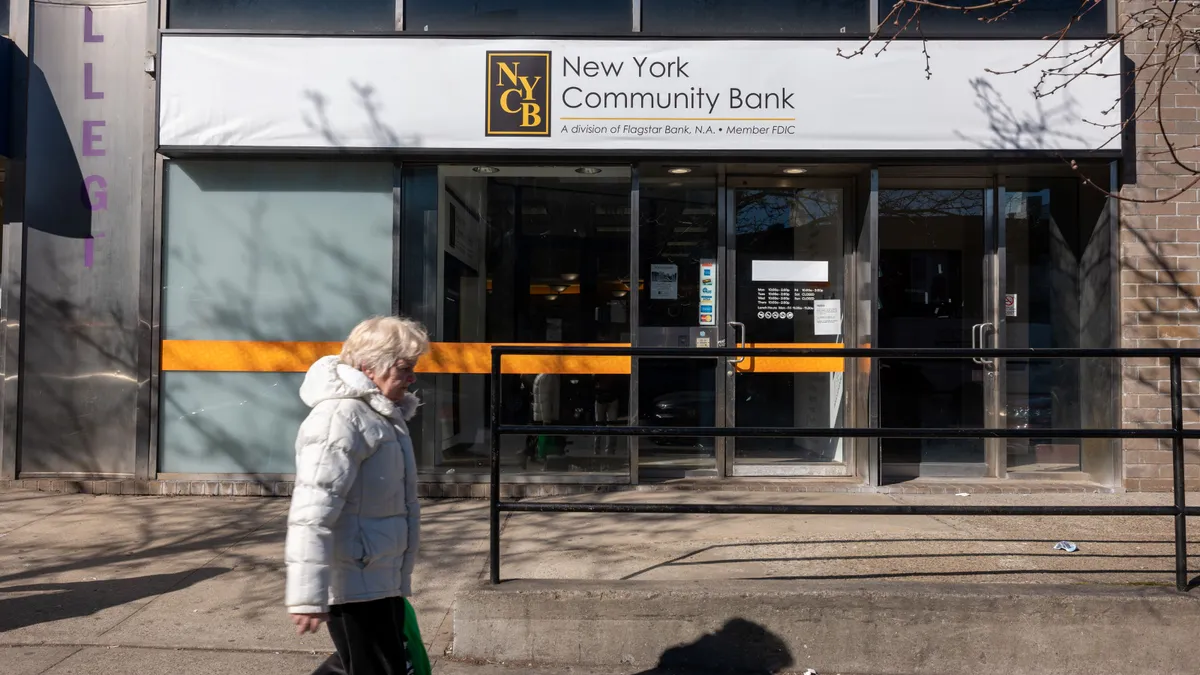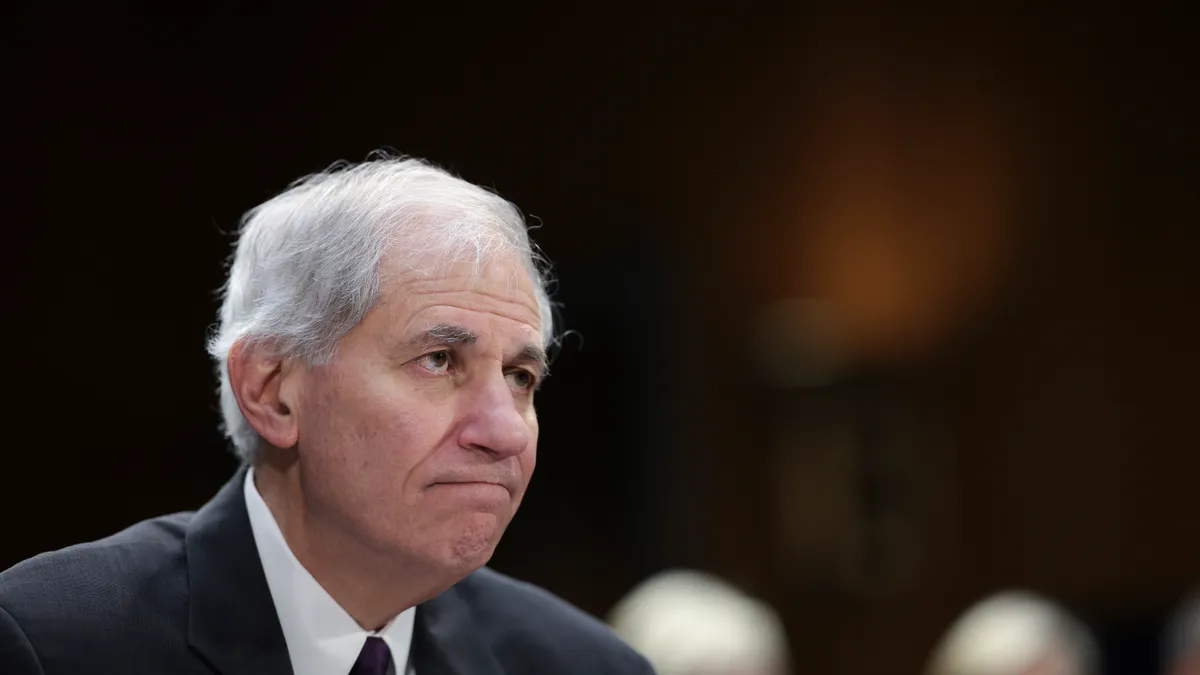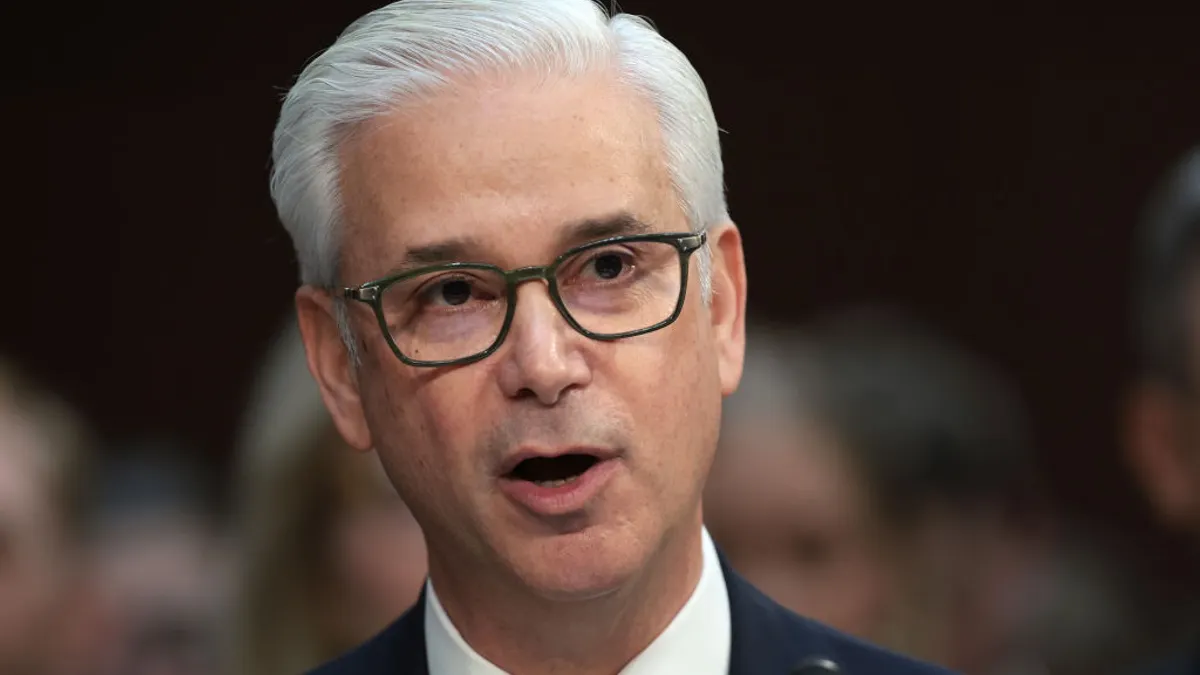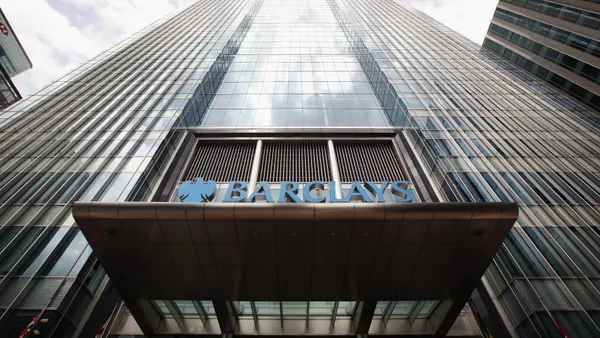It’s a given that interest rates, inflation and tariffs would be hot topics during Federal Reserve Chair Jerome Powell’s appearances this week in front of House and Senate lawmakers.
Perhaps less expected may have been lawmakers’ anticipation of a Fed board meeting Wednesday with an eye toward decreasing the enhanced supplementary leverage ratio, the calculation of how much capital banks must hold relative to their assets.
Under current rules, the capital requirement for bank holding companies is 5%. That figure, for those companies’ banking subsidiaries, is 6%. But one potential proposal could reduce that level to between 3.5% and 4.5% for holding companies and their banking subsidiaries, Bloomberg reported this month. And the revised ratio could exclude specific assets such as Treasuries.
Such a move would free banks to trade more heavily in the $29 trillion Treasuries market. But the ranking member of the Senate Banking Committee warned, in a letter to one of Powell’s colleagues this week, that banks would more likely take the capital from a reduced eSLR and return it to shareholders rather than investing it.
“Bank lobbyists often mislead policymakers and the public by implying … that easing the eSLR would free up a pot of money for banks to lend more or buy more assets, like Treasuries," Sen. Elizabeth Warren, D-MA, wrote Monday to Fed Vice Chair for Supervision Michelle Bowman. “Instead, megabanks appear motivated by the short-term benefits of capital deregulation for shareholders and executives: increased dividends, buybacks, and bonuses.”
In her letter, Warren cited comments JPMorgan Chase’s then-CFO made in 2021, when temporary tweaks were made to the supplementary leverage ratio in the face of COVID-19 pandemic-related market stress.
Changes to the SLR would “impact the pace of capital return,” the JPMorgan executive said at the time, according to The New York Times.
Warren, for her part, said it would be “irresponsible to slash the eSLR in any economic environment [but] especially reckless to do so given the numerous threats to the economy and the nation’s financial system.”
Her letter was also addressed to Acting Comptroller of the Currency Rodney Hood and Federal Deposit Insurance Corp. Acting Chair Travis Hill. The FDIC board will meet Thursday to discuss eSLR requirements.
“Banks … assert that the eSLR should be lowered because it is too often the primary constraint on Wall Street risk-taking,” Warren wrote Monday. “Big banks would much rather have risk-weighted capital requirements be their primary constraint, since they know how to manipulate them."
Powell, in testimony before the House Financial Services Committee on Tuesday, told lawmakers the potential eSLR changes are meant to make the ratio a backstop instead of a binding constraint for banks.
“When the leverage ratio is binding, it discourages banks from undertaking low-margin, fairly safe activities such as mediation in the Treasury markets,” Powell said. “[The changes] should encourage more mediation.”
Republican letter
Another perhaps unexpected source of discussion in Powell’s Senate panel hearing Wednesday pertains to renovations at two Fed offices in Washington, D.C.
Six Republican senators wrote Powell on Tuesday, asking the central bank chief to justify a refresh that reportedly includes rooftop garden terraces, ornate water features and white marble. The Fed initially said the renovation, once billed at $1.9 billion, was meant to address a backlog of necessary building code upgrades and IT requirements, according to the senators. But the cost has allegedly swelled to $2.5 billion, spurring the senators to castigate the Fed for its “lavish” choices while “Americans are struggling to put food on the table.”
The senators also lauded the Fed for eliminating reputational risk as a facet of bank examinations, but argued there is “significant work ahead to right-size the regulatory framework for financial institutions.”
“Banks are facing a record number of regulations,” the senators wrote. “Small community banks are especially burdened by compliance costs and are increasingly priced out of growth” over such obligations, they added.
The senators urged Powell to give Bowman the space and trust to reassess and right-size the Fed’s regulatory footprint.
Inflation, tariffs and Trump’s shadow
To be sure, much of Tuesday’s House panel hearing focused on the expected topics. The Fed, Powell said, is “squarely focused” on balancing its dual mandate of achieving maximum employment and stable prices.
Inflation “has come down a great deal but has been running somewhat above our 2 percent longer-run objective,” he said in his opening statement, adding that the effect of tariffs instituted by President Donald Trump will depend on the tariffs’ ultimate level and staying power.
The anticipated level of tariffs has subsided since April, Powell said. Tariffs’ impact on inflation may be short-lived, but the Fed chair indicated he hadn’t ruled out a more persistent drag.
To that end, he didn’t commit to a timeline to reduce interest rates.
“We’re going to be learning,” Powell said. “We will get an inflation number for June. We’ll learn something. Then we’ll get it for July.”
That wait-and-see approach has proved a persistent source of flak from Trump.
In a post Tuesday on Truth Social, the president urged lawmakers to put the screws to Powell.
"I hope Congress really works this very dumb, hardheaded person, over,” Trump wrote. “We will be paying for his incompetence for many years to come."
Trump has habitually taken to name-calling over Powell’s reluctance to cut interest rates – a choice the Federal Open Market Committee reinforced last week.
Powell, testifying Tuesday, said he would "live with the consequences" of Trump’s epithets.
"We're focused on one thing. That is, we want to deliver a good economy for the benefit of Americans and for the health of the American people," Powell told Rep. Josh Gottheimer, D-NJ on Tuesday. "That's it. Anything else is kind of a distraction."
Other Republican lawmakers have taken a gentler approach than Trump, while still showing impatience toward Powell.
“Chairman Powell deserves credit for navigating some of the toughest terrain in modern history,” Rep. Dan Meuser, R-PA, posted on X. “But with inflation cooling and a strong labor market, the upside of lower rates is becoming hard to miss.”
James Egelhof, chief U.S. economist at BNP Paribas, has said Powell “seems to see little urgency to adopt a strong view on the likely course of inflation, and he seems to see a lot of risk to making the wrong assessment.”



